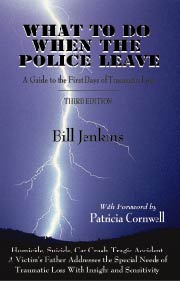Victim: Donald Pinkham, 47
Age at time of murder: 17
Crime location: Gloucester
Crime date: October 1, 1982
Partner in crime: Kris Behsman, 16
Crimes: Robbery and murder
Weapons: Rocks and lit sticks
Attack method: Beating and burning
Sentence: Life without parole (LWOP) later reduced to 15 years to life
Incarceration status: Granted parole
Summary
Jones and his accomplice robbed Donald. They beat him with a rock and burned him with lit sticks, leaving him badly burned and bruised with part of his face missing and his head crushed.
Jones’s LWOP sentence was reduced to 15 years to life after the Massachusetts Supreme Court banned juvenile LWOP. In 2019, Jones was granted parole.
Details
Teen Pinkham killer, granted parole at 53
- By Ray Lamont Staff Writer
- May 19, 2019
Ray Lamont May 19, 2019
A teen killer convicted and sentenced to life without parole 36 years ago in the brutal 1982 slaying of a Gloucester man has, indeed, been granted parole. He is on a track to be freed within a year.
John Jones was 17 at the time he and a 16-year-old accomplice conspired to rob Donald Pinkham and then beat, burned and killed the 47-year-old. Now 53, Jones has been granted parole after a 12-month stay in a lower security facility followed by at least 90 days in long-term residential program. All terms date to his December parole hearing, according to a Massachusetts Parole Board decision released at the end of April.
Conditions for Jones’ parole call for him to be at home between 10 p.m. and 6 a.m. at the discretion of his parole officer during his monitored stays. He must be supervised for drug and liquor abstinence, he must report to his parole officer on the day of his release from the residential facility. He also must have no contact with family members of the victim, to whom he issued an apology at the December hearing, according to the Parole Board’s account.
Board members held that Jones merits a chance at freedom.
“After careful consideration of all the relevant facts, including the nature of the underlying offense, the age of the inmate at the time of the offense, criminal record, institutional record, the inmate’s testimony … and the views of the public as expressed at the hearing or in written submissions to the board, we conclude that that the inmate is a suitable candidate for parole,” the board’s four-page decision reads.
The board said Jones’ “parole plan” includes a support system of family and corrections-based programming. Its statement also noted that Jones has been accepted to spend his low-security time in Answer House in South Boston and that he has “received an employment offer from a construction company, if granted parole.”
The decision also states that the 1993 death of Jones’ brother inspired him to carry out a life of sobriety, and that Jones has had a clean record without any disciplinary actions within the prison system since 1994.
Jones was among the convicted killers who were younger than 18 at the time of their crimes and sentenced to life terms without parole who received a chance to seek parole due to a state Supreme Judicial Court decision.
He and 62 other violent offenders were given the reprieve when court issued a finding in December 2013 that criminals of that age did not have the mental capacity to understand the consequences of their actions, and therefore should not be subject to never having a chance at parole. Jones’ first parole bid in 2013 was denied.
The Parole Board has since held hearings for at least 43 of the convicts seeking release, according to state figures.
The court ruling does not sit well with Essex District Attorney Jonathan Blodgett, whose office sharply contested Jones’ bid for parole, as it has for other killers seeking parole. Among those, the Parole Board granted parole last October to John Nichypor, now 47 and one of three teens convicted in the 1988 Gloucester murder of David McLane in Gloucester, allegedly because they resented that McLane was gay. Nichypor was also released to a lower security facility, and will be released to his family in Florida, according to the Parole Board ruling.
“We obviously opposed (the Jones parole bid),” Carrie Kimball, communications director for the Essex DA’s office said in a phone interview. “From the very beginning, since the Supreme Judicial Court ruled that juveniles who were convicted of first-degree murder could not be sentenced without parole, we disagreed. We were disappointed, and we expressed our opposition at the time.
“We’re all about second chances for young people,” Kimball said, “but when it comes to first-degree murder — when there is deliberate premeditation or extreme atrocity or cruelty — we strongly believe those individuals should serve life without parole.”
Jones and then 16-year-old Kris Behsman conspired to rob Pinkham, before beating him with a rock and burning parts of his body with lit sticks while he was alive in the course of the slaying in an area off Cleveland and Grove streets. The area, because of the murder, as became known as “Dead Man’s Path.”
Behsman, who, like Jones, lived in the Maplewood Park housing complex at the time, was never tried as an adult.
A judge found probable cause against him for his role in the slaying, and ordered him remanded to the custody of the state Department of Youth Services. Behsman became eligible for release from that department at 18, and was ultimately freed.
COMMONWEALTH vs. JOHN M. JONES
The defendant was found guilty of the murder in the first degree of Donald Pinkham. The evidence showed that Pinkham was killed in Gloucester in the early hours of October 1, 1982. His body was badly burned, bruised, and beaten; part of his face was missing; and his head appeared to have been crushed.
…
The defendant and the juvenile planned to rob the victim for his money. They killed him on a path, ironically known as “Dead Man’s Path,” near the railroad tracks. They set his body on fire. They struck his head with rocks causing seriously disfiguring injuries. They then went to the apartment of Jody Tyne, a friend of the defendant who was several years older than they. There the two made admissions, whose admissibility we discuss later. On Tyne’s order, the next day the defendant, admitting to nothing, led the police to the victim’s body. The defendant told his then girl friend that “they did it” because the juvenile wanted money. He admitted to kicking the victim and going “wild.” He made admissions to another woman who lived in the same development where he and Tyne also lived. He agreed with her to turn himself in to the police. There was testimony from various sources that the defendant had been drinking on the night of the murder.
The battle a family shouldn’t have to fight
It’s a shame that the family and friends of Beth Brodie, the popular Groveland teenager whose life was snuffed out by a 16-year-old killer who was rightfully sentenced 22 years ago to a life term with no hope of parole, has to spend even a second of their time worrying about the loved one’s murderer.
Yet, that’s the case, thanks to last Christmas Eve’s wrongheaded ruling by the state’s Supreme Judicial Court, which found that juveniles like Richard Baldwin and others of his ilk were simply too young to be handed such a harsh term, and are indeed now eligible for parole.
To that end, no amount of credit can be too much to extend to people like Brodie’s brother, Sean Aylward, who met with lawmakers this week to push for support behind an important bill filed by state Sens. Bruce Tarr, R-Gloucester, and Barry Finegold, D-Andover, that would keep juvenile killers like Baldwin in prison for at least 35 years.
There are, thankfully, signs that the bill is on a relative fast track. A hearing on the bill is set for next Wednesday before the Judiciary Committee, and that means a vote by the full House and Senate may be on the table before the current legislative session ends July 31.
We can only hope that’s the case.
The SJC’s ruling was retroactive and opened the door for 63 inmates convicted as juveniles to become parole-eligible after serving 15 to 25 years — the same as those convicted of second-degree murder.
In addition to the heartbreaking Brodie case, the killers who have newfound parole eligibility include John Jones, who was 17 when he killed Donald Pinkham in Gloucester in October 1982; and Joshua Halbert and John Nichypor, both of whom were under 18 when they were convicted of killing David McLane in Gloucester in September 1988.
None of them, of course, should ever see the light of day — and that’s what the judicial system found at the time of their sentencings, bringing at least some measure of justice to the families of the victims.
Yet, the December SJC ruling has indeed given those families a vicious slap in the face, not only bringing back the pain through present-day reminders of horrors they can never forget, but also confronting them with the very real potential for their loved ones’ killers to gain freedom.
Indeed, Brodie’s sister, Dawn Santino, said the family learned that Baldwin was eligible for a parole hearing this month as a result of the ruling, but postponed his hearing. She expects him to seek release from prison and said she dreads the idea of having to go before a parole board to keep him locked up.
“The thought of him getting out is sickening,” Santino said. “We were assured that he would never be released from prison.”
She’s right, of course. As is her brother.
“Life without parole should mean life without parole,” said Aylward, who lives in New Hampshire. “While this might not help with our situation, it will help future victims.”
That indeed is where the Tarr-Finegold legislation comes in. But while we’re grateful for those senators for carrying on this legislative fight — and hope their bill gains fast-tracked approval — let’s also not forget the courage of the Brodie family to stay on top of a battle they should never have had to fight.
Their persistence in giving emphasis to the Tarr-Finegold bill will indeed help ensure others will never have to endure the pain they’ve had to once again endure since last December.
And all of us should appreciate their keeping up the quest for the closest thing to justice in these cases that they — or we — can ever get.
See also
https://www.bostonglobe.com/metro/2019/05/06/parole-granted/63M1NPOinWZNHLcU7se4AP/story.html











